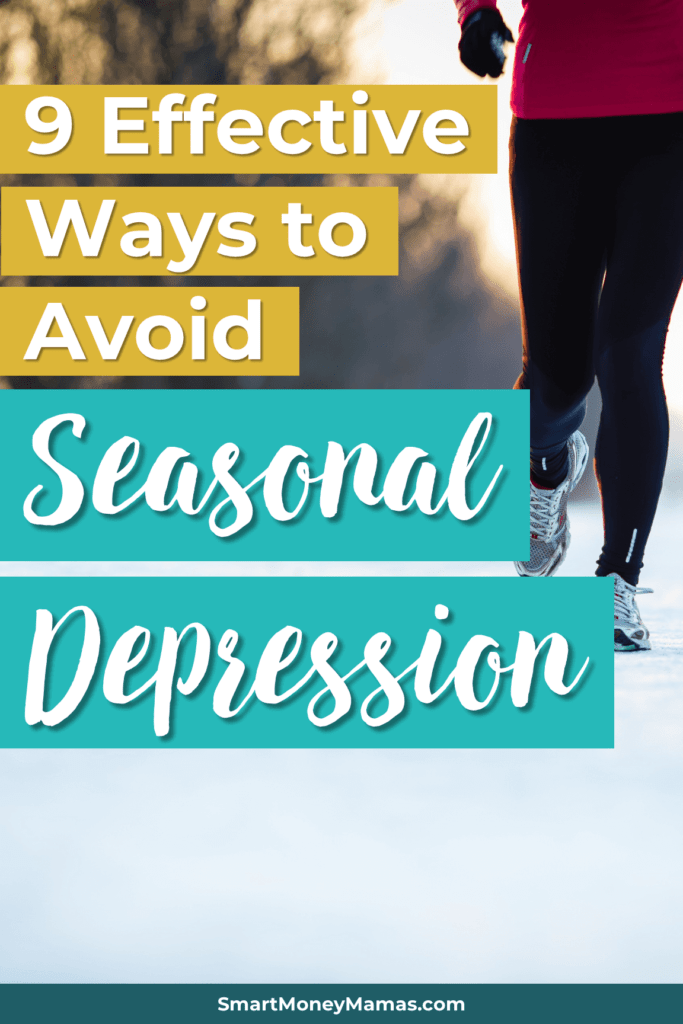Every year, as the holidays wind down, work starts up again, and decorations get packed away, my mood drops a bit. The days are shorter, I’m surrounded by fewer of the people I love, and things just feel a bit dreary.
It turns out, I’m not alone.
There is a phenomenon that occurs with many people called seasonal depression or the post-holiday blues. Depression, apathy, and anxiety creep in. And it can feel hard to escape.
Luckily, there are awesome ways to handle this little (and sometimes not so little) slump in our moods. A little self-care while making a few lifestyle changes can help you feel a lot better. Plus, it can make you healthier overall.
If you’ve ever felt the post-holiday blues, you’re not alone. We’ve rounded up some strategies to help, but if you feel overwhelmed, never be afraid to talk to a medical professional.
Table of Contents
Why Does This Happen?
We can tend to feel depressed after the holidays for a myriad of reasons. Perhaps the holidays were stressful or disappointing. Often times we see family we normally don’t see and it could have reopened wounds or memories.
The holidays can also be a joyous time for many stuffed with gatherings and social events. We are busy singing while staring at twinkling lights. Then in January, one of the darkest and coldest months, the social events tend to die out and people start to hibernate. This can cause feelings of detachment and loneliness.
Lastly, many of us are traveling, on vacation, or off work for a few days and spending more time with those we love- even if it is just your favorite cat. Once we return to work-reality sets in and a mountain of work may be left for us.
How to Notice the Signs
If you are feeling fatigued, listless, unable to focus on work, and generally unwell these can be signs of depression.
Sleep difficulties, aches and pains, decreased energy, guilt, and general irritability are also common feelings that emerge after the holidays. And these can be signs of seasonal depression.
None of these signs mean you are weak or that there is anything wrong with you. Depression or anxiety can happen to anyone.
Just know that your mental health is important. Keep checking in with yourself. Things can get better.
And if you need help, ask for it. There is no shame in seeing a counselor or talking to your doctor about treatment outside the lifestyle suggestions we will discuss here. I am a firm believer that everyone needs counseling; it was one of the best things I ever did for myself. Because who couldn’t use someone to talk to?
If you are experiencing extremes of any signs listed above or feel unwavering sadness, call a professional for help. If you need immediate help call the suicide prevention helpline at 1-800-273-8255.
*This content is not intended to be a substitute for professional medical advice, diagnosis, or treatment. Always seek the advice of your physician or another qualified health provider with any questions you may have regarding a medical condition.
What You Can Do to Combat Seasonal Depression

There are ways to treat or avoid depression that don’t require medication. Instead, it focuses on establishing healthier habits, getting your body what it needs (good food, sleep, exercise), and setting positive goals.
1 – Balance the Body with Intake
Over the holidays we tend to indulge more and stock up on our sugar supply. This can cause the body and its hormones to get a bit out of sorts and in turn, affects our mental health. The mind-body connection is real and present, so try to get back on track with healthy eating.
(Not a new diet, just healthy eating)
A few easy things to incorporate as soon as possible:
- Drink more water – flush out the body
- Add Chia seeds or Aloe Vera to your cooking and water. The gelatinous quality of these foods acts to absorb toxins in the digestive tract, including what dumps out of your liver.
- Add lemon and garlic to foods as these act to boost the immune system and help your digestion.
2 – Getting Outside for Vitamin D
Fresh air and the sun will do so much for our bodies and balancing our mental well being. I know it is freezing, but try to get outside once a day for a brief bit. Throw on your parka and walk the dogs or head to a local trail. I enjoy winter walks and outside time because it tends to be quiet and I often have places to myself.
Perhaps you live in Alaska or an area like the PNW like I do where sunlight is scarce (or you’re stuck in an office all day), there are options to supplement the lack of sunlight. Try taking a Vitamin D supplement or purchase a Happy Light to place on your desk at work or by your bed for the morning.
3 – Move Your Body
Along the same lines as getting outside, getting moving will help to keep your mind and body healthy.

While a job or cycle class are very beneficial, consider some slow movements to build strength and nourish the body. You do not need to sweat and tear it up to move. Doing too much too fast can actually increase stress in the body. We want to eliminate stress, so this is where slow movement comes in.
While we all know we need to exercise, it can sometimes feel impossible to leave the house in the winter. It’s too cold outside, the snow has trapped you inside, or it just gets dark too early.
But you don’t have to join a crowded gym or fancy yoga studio to exercise. Instead, you can practice at home. There are so many YouTube videos for slow movement or yoga.
4 – Establish a Routine
Our body and minds crave routines. It reduces the work our brains have to do and can bring a sense of “normalcy” to our lives. Something especially important after the holidays.
It can also help to lessen the feeling of ‘doing nothing’ that sets in after your life has been very full of activities.
A routine doesn’t need to add lots of new tasks and activities to your life, only provide some structure. Have a rhythm to your morning and a routine to follow. Create a bedtime routine with the family.
Establishing a stable routine will help give your life more flow and help you feel less overwhelmed.
5 – Tidy Up
I know, another lady telling you to clean up the house. The nerve.

However, I’m not going to preach minimalism. I’m not going to tell you to get rid of all your belongings or only keep a few items on every surface. This is about your mental health, not some Better Homes Magazine image of a living room.
Instead, I recommend tidying up because extra clutter from the holidays can cause stress.
There are many studies that show extra clutter around the home can be draining and cause fatigue. So, try to set aside a small portion of time to put away any presents, clear out the tree and box up the lights. Fewer items in your living space will make it feel lifted and lighter.
6 – Set Goals, Not Resolutions
The New Year brings on packed gyms and all the mega resolutions that often get forgotten after a month. Instead, set bite-sized goals throughout the year can seem a bit more manageable.
Also, goals can be adjusted when needed.
As a teacher, I love the SMART goal process. This means setting a goal that is Specific, Measurable, Attainable, Realistic and Time-Based. I particularly like 12-week goals, as made popular by The 12-Week Year, because it is easier to focus on a goal less than 3 months away than a whole year.
Instead of setting a resolution to lose weight, set a SMART goal that says:
I will lose 10 pounds in 12 weeks by eating healthy, working out at least twice a week, and drinking more water.
This way, starvation, fad diets, or the desire to give up because your goal is so far away tend to stay at bay. So does that feeling of guilt that seeps in after we break a resolution for the first time.
7 – Get Your Budget On
Speaking of goals, getting your financial health in order can truly lift the sense of worry, stress, guilt, and shame that all come from money or lack thereof.
Often, money problems come to head at the start of the year when all of the bills from the holiday start to pile up. This is a perfect time to re-evaluate and get your budget on.
Taking control of your money means taking control of your life and can be one of the most empowering steps to take.
If you are not sure where to start, try taking the Complete Financial Health Audit for free here and get on the road to financial health.
Trust me, your mental health will benefit from some financial stability.
8. Plan a Vacation or Event
As part of your financial re-evaluation, make sure to include some fun events or even a vacation. The holidays are full of social events and time with those we love. When we return to work and our normal lives, it can often feel isolating.
Planning to go to an event or a vacation, even if months away, can give you something to look forward to and, in turn, lift the spirits.

To make this budget-friendly try an AirBnB for the family, stay with friends, or find a fun event to attend locally.
9 – Reach Out to Friends & Family
Lastly, the holidays can bring people we love (and some we don’t) together. It makes us feel cared for and close to others, something we absolutely desire as human beings.
Remember that this doesn’t have to be a once a year occurrence. Reach out to loved ones and friends throughout the year to connect, hear about their lives, or plan get-togethers. It will strengthen your bond and life your spirits.
While Facebook, Instagram, and other social media platforms are one way to stay in touch, it isn’t the same as a real, one-on-one connection. Pick up the phone and call a friend, write a note, or better yet, go visit.
Practice Self-Care This Winter
Mental health can often be overlooked in our society. Depression and anxiety, while incredibly common, is still swept under the rug in many circles. Don’t let that keep you from taking care of yourself and asking for help when you need it.
Keeping yourself mentally healthy should always be a top priority.
Wishing you a peaceful and happy season!
Have you ever suffered from seasonal depression? How did you handle it? Share your experiences in the comments!




My wife and I find it a great time for outdoor activities. Distance running is great in cold conditions as is hiking when there are no snakes, bears or mosquitoes around. Off roading is great too after the hunting seasons have closed. We have learned to find some winter outdoor silver linings. We do a lot of the same things outdoors, including tennis, with no sweat!